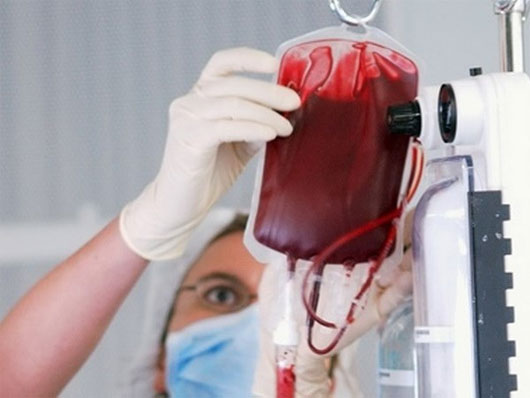Blood transfusion abuse increases the risk of infection
According to a study published in the Journal of the American Medical Association, abuse of blood transfusions may be associated with an increased risk of infections such as lung infections, blood infections and wound infections. .
Blood transfusions are usually given to people who are anemic or during surgery to make up for the lost blood.

In the US, in 2011 alone, about 14 million units of blood cells (RBC) were transmitted. Although a reduction in blood volume has been recommended, only 31% of hospitals in the country have a blood transfusion management program.
To assess the relationship between blood transfusion and the risk of infection related to health care, scientists at the University of Michigan and the Health Care System and Ann Arbor (USA) analyzed 21 trials. with more than 8,700 patients receiving blood transfusions.
The results showed that the prevalence of infections in people with controlled blood transfusions was 11.8%, down from 16.9% in those receiving free blood transfusions.
According to the scientists, the risk of infection due to blood transfusion in hospitals is especially high for patients who already have infections before.
These people are at twice the risk of infection when they are given more blood. However, for every 38 patients considered for blood transfusions, one can avoid this risk if blood transfusions are not abused.
- History of hematology
- Scientists effectively convert group A and B blood into group O, which can be transmitted to anyone
- Can humans be immortal by blood transfusion technology?
- Correct understanding of blood type and blood transfusion principles
- Why split into blood groups and tragic history stories
- Malaria increases the spread of Aids
- Blood test for oral cancer
- 'Improving old people,' brain with blood replacement
- Personality through blood type
- Artificial nose helps to find blood infection bacteria
- Air and noise pollution increases the risk of high blood pressure
- Abdominal fat increases the risk of death
 Green tea cleans teeth better than mouthwash?
Green tea cleans teeth better than mouthwash? Death kiss: This is why you should not let anyone kiss your baby's lips
Death kiss: This is why you should not let anyone kiss your baby's lips What is salmonellosis?
What is salmonellosis? Caution should be exercised when using aloe vera through eating and drinking
Caution should be exercised when using aloe vera through eating and drinking